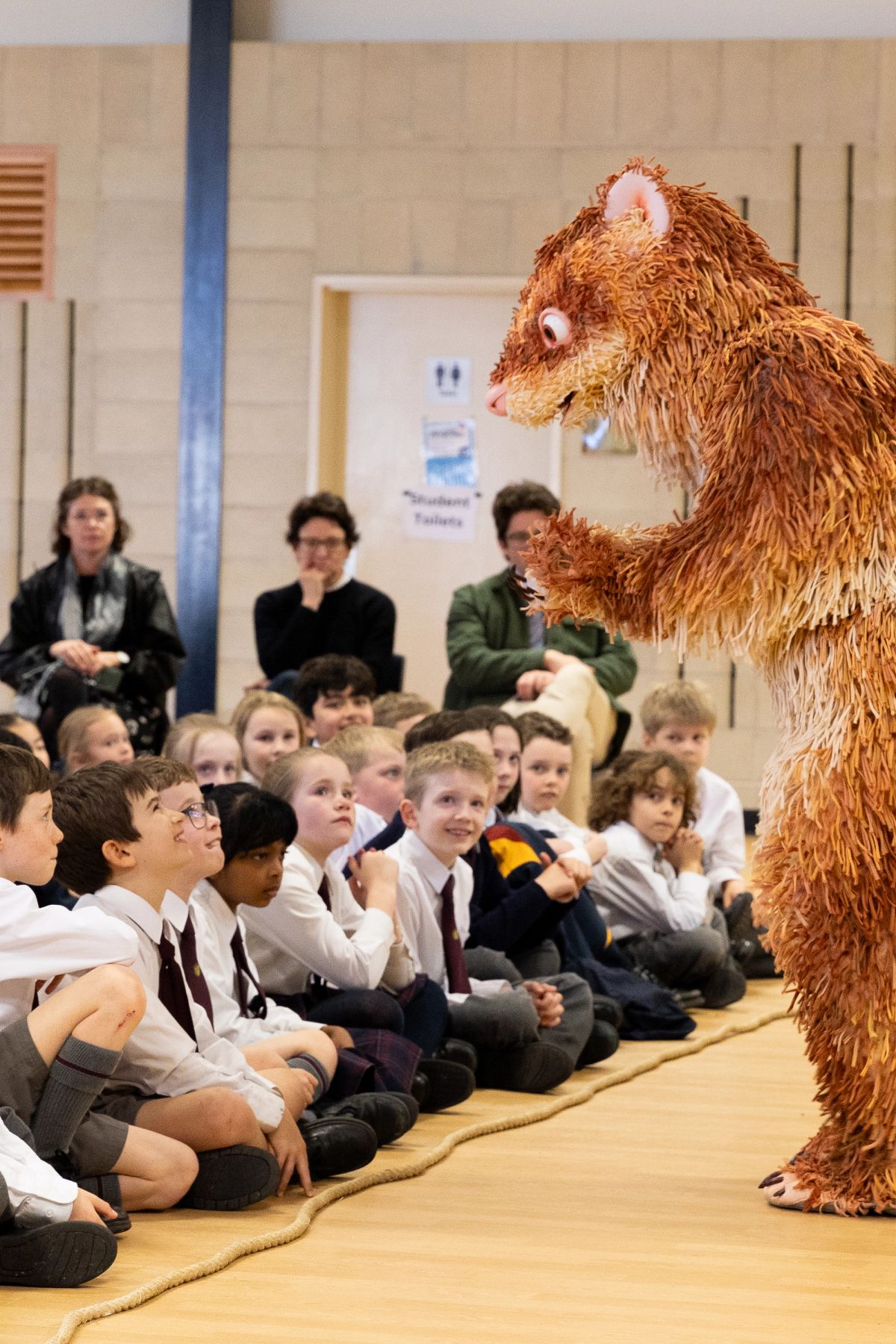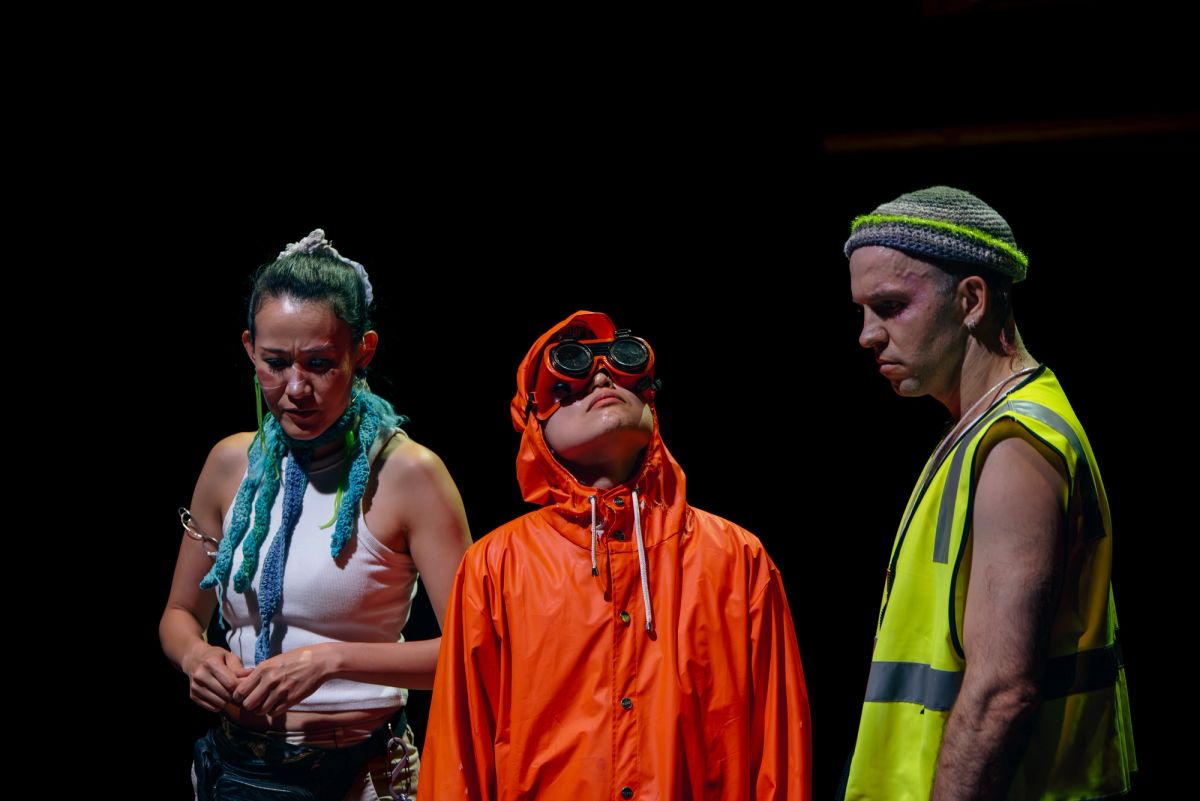In today’s world, we must remember to include the voices of children.
Our purpose is to make lives better, shift realities, and create connection.
As we face a national reckoning on the safety of children, and seek to address the challenges of disengaged young people in schools and public places, we must remember to include the voices of children in our community discussions. Children can’t vote, don’t control money and hold little social power — making it all too easy for them to be sidelined. In a society that tends to grant status based on age, wealth or authority, children remain among our most low-status citizens — despite having the most at stake in our collective future.
At Terrapin, we believe creativity is not just a vehicle for expression, but a force for connection and change. We see arts and culture as powerful tools to elevate the voices — and the status — of children. In recent years, we’ve leaned into that belief: reaching further, collaborating more widely, and holding fast to our purpose — to make lives better, shift realities, and create connection, particularly here in Tasmania.
As Tasmania’s only professional theatre company enjoying multi-year state and federal funding, Tasmanians will always be our first audience. Whether we’re touring a new production, activating public spaces, or working across generations, we continue to deliver meaningful cultural experiences to communities across the island — as we’ve done for nearly 45 years.
We have evolved from a touring performing arts company to a cultural changemaker, focused on impact as well as artistry. Looking at the world around us, we believe Terrapin (and Tasmania’s many and diverse artists and cultural organisations) plays an increasingly critical role in building a resilient, connected community, where young people are valued and heard.
Over the past year, we were proud to partner with the Commissioner for Children and Young People and the Tasmania Football Club on cross-sector projects that celebrated children and delivered meaningful community outcomes.
A Mountain of Voices was co-designed with the Commissioner and the Voices for Tasmanian Youth — a consultative council of 19 children and young people aged 10 to 18 from diverse backgrounds. Developed through a process that placed young people in the lead, the project empowered them to shape its purpose, direction, and outcomes.
This interactive public space installation served as a creative response to the Commission of Inquiry into the Tasmanian Government’s Response to Child Sexual Abuse in Institutional Settings. A Mountain of Voices invites children and young people to climb a mountain and share a power statement through a megaphone, amplifying their voices to adults and decision-makers.
Just as A Mountain of Voices gave young people a platform to be heard, our collaboration with the Tasmania Football Club invited children to help shape something iconic and enduring. Bringing together two great Tasmanian passions — art and AFL — Terrapin worked with school children across Tasmania to design the club’s official mascot, Rum’un. The result was a uniquely Tasmanian creation, brought to life using recycled school uniforms, and filled with spirit, play, and pride.
From collaborative public projects to intimate school performances, Terrapin’s work continues to centre children’s experiences and voices. In 2024, Feathers - a tender tale about a curious young ferret searching for a place to belong - reached more than 14,000 students across 75 schools, including King and Flinders Islands. Its exploration of being yourself is, as described by a teacher, ‘a beautiful, thought-provoking message for the children — such a great starting point for so many current issues for children.’
Expanding the scope and ambition of international touring, Goldfish was created in collaboration with leading Japanese artists. This ground-breaking theatre work explores the role of performance in times of increasing disaster. Travelling without a set, all materials were locally sourced with a focus on disaster recovery items, then donated to local partners — a unique model that reduced carbon emissions and deepened local impact. Terrapin’s 2025 schools tour of Goldfish is currently on the road (somewhere between Cygnet and Stanley) until mid-November.
Terrapin’s focus on community was at the heart of Storied, a series of intergenerational workshops we ran last year, bringing elders and young people together to create shadow puppetry performances. The performances were only the tip of the iceberg when it came to storytelling and connection: the elders and children learnt from each other and were enriched by spending time together.
Tasmanian cultural organisations and Tasmanian children have much to offer our island state. Culture and creativity connect us despite our differences, prioritising human experiences in an increasingly digitised and AI-influenced world. Our colleagues around the state are using their unique skills to create real change in their communities.
We see this truth reflected in every child’s gasp of wonder, every conversation sparked after a show, and every shared moment of recognition. These moments aren’t just heartening — they’re reminders of how essential children are to our cultural life. In 2025 and beyond, Terrapin will continue to find new ways to apply creativity to strengthen communities, invite new perspectives and explore what it means to live and connect in today’s world. We invite the broader community to join us in listening more deeply to children — to their ideas, their stories, and their hopes — and to recognise them not just as our future, but as vital citizens of today.

Storied: Intergenerational Storytelling, Greta Jean with Warrane Primary School student, 2024. Image: Peter Mathew 
Feathers at Scotch Oakburn College, 2024. Image: Hannah Todd 
Goldfish at AsiaTOPA Festival, Mayu Iwasaki, Rino Daidoji, and Marcus McKenzie, 2025. Image: Gregory Lorenzutti